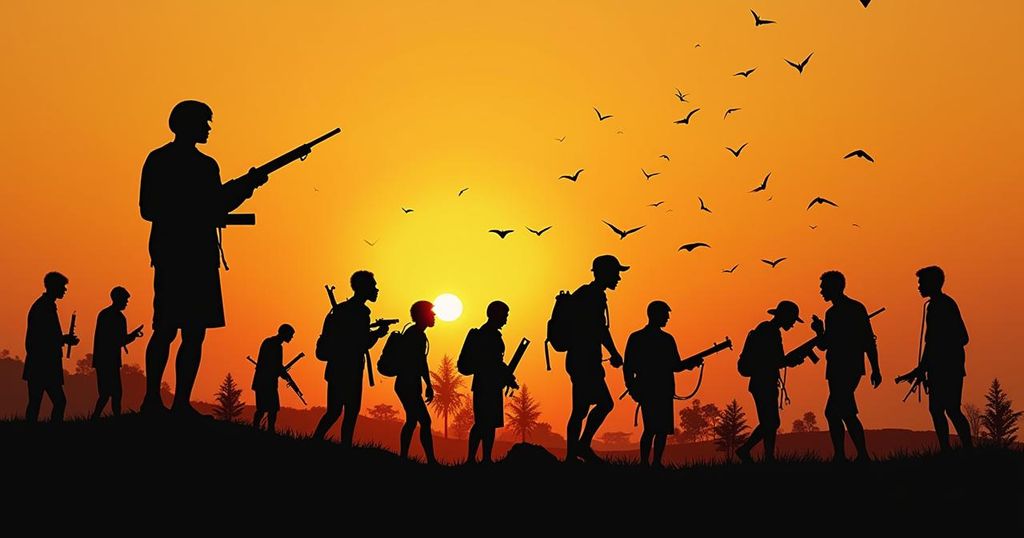Mozambique Prepares for Pivotal Elections Amid Insurgency and Hunger Crisis
Mozambique is preparing for crucial elections on October 9, 2024, amid a jihadist insurgency and severe drought-induced hunger. Approximately 17 million voters will elect a new president, as the incumbent president is barred from seeking another term. Candidates promise to prioritize peace in Cabo Delgado, although issues of corruption and past electoral fraud raise concerns about the legitimacy of the elections. Electoral observers are present to ensure fairness during the voting process.
Mozambique is bracing for significant elections in the midst of a jihadist insurgency and severe drought-induced hunger. Scheduled for October 9, 2024, approximately 17 million voters will select a new president, as the incumbent, Filipe Nyusi, is barred from running for a third term following two consecutive periods in office. Candidates have made promises to tackle the escalating violence in Cabo Delgado province, a region plagued by conflict since 2017 due to an Islamic State-aligned group. Amidst ongoing military actions and displacements, the elections are seen as a potential turning point for establishing peace and rebuilding the war-torn area. Candidates are focusing their campaigns on restoring security and addressing the humanitarian crises exacerbated by conflict and drought, which has left 1.3 million Mozambicans facing severe food shortages. The ruling Front for the Liberation of Mozambique (Frelimo), led by Daniel Chapo, and independent candidate Venacio Mondlane are among those vying for votes. Despite Frelimo’s historical dominance in the region, allegations of corruption and electoral misconduct from prior local elections cast a shadow over the forthcoming process. A team of 52 observers from the Southern African Development Community has been deployed to ensure electoral integrity, particularly in the wake of previous reports of vote-rigging and intimidation.
The upcoming elections in Mozambique occur against a backdrop of significant social and political challenges, notably terrorism and humanitarian crises. Since 2017, the Cabo Delgado province has been under siege from an insurgency associated with the Islamic State, leading to loss of life and forced displacements, with 1.3 million people uprooted from their homes. This conflict, coupled with El Nino-induced drought effects, has significantly hampered food security, affecting millions. The ruling party, Frelimo, has been in power since the country’s independence in 1975 but faces criticism amid widespread corruption scandals, including the infamous ‘tuna bond’ scandal that led to a financial crisis in 2016. Election observers express concern over potential electoral malpractice, emphasizing the importance of transparent and fair electoral processes to ensure democracy and stability in the region.
The elections scheduled for October 2024 in Mozambique are seen as pivotal for the country’s future, with candidates promising plans to address urgent issues of violence and hunger. Daniel Chapo, representing Frelimo, and independent candidate Venacio Mondlane are leading in their commitments to restore peace in Cabo Delgado. However, the history of corruption and potential electoral fraud raises questions about the legitimacy of the upcoming elections. International observers will play a crucial role in monitoring the electoral process, with hopes that transparency is upheld to bolster the democratic fabric of Mozambique amid its ongoing struggles.
Original Source: apnews.com




Post Comment